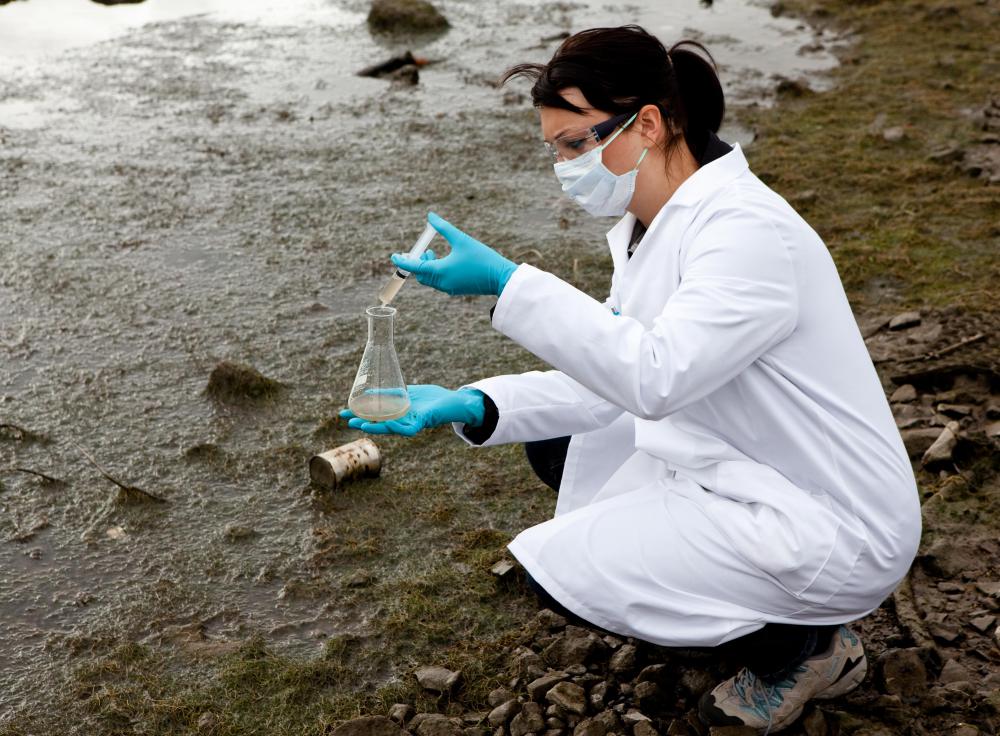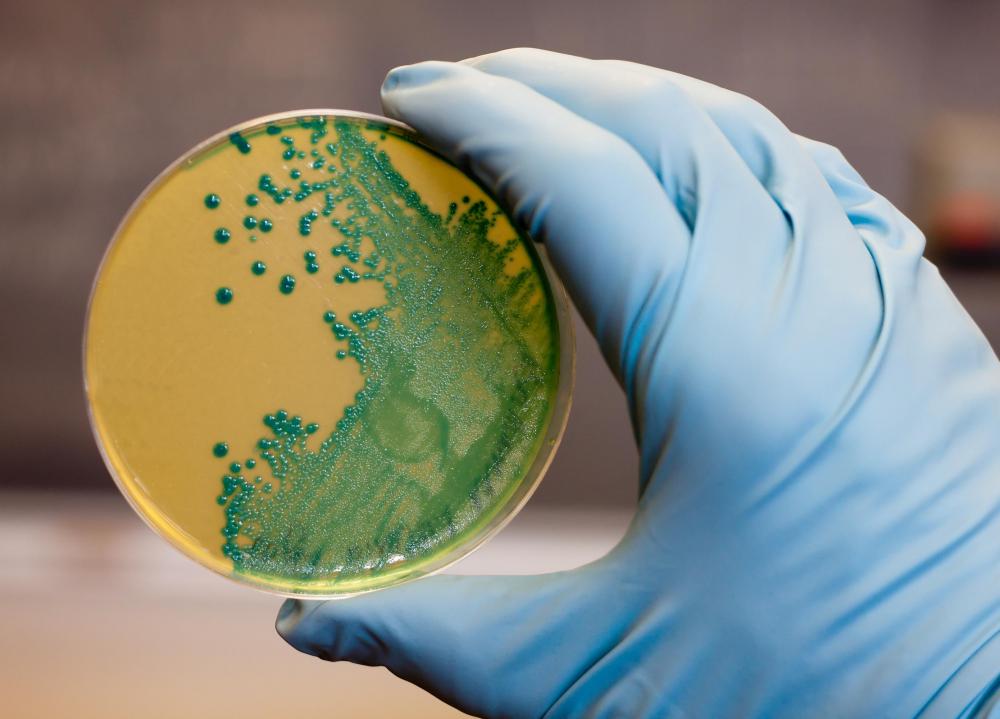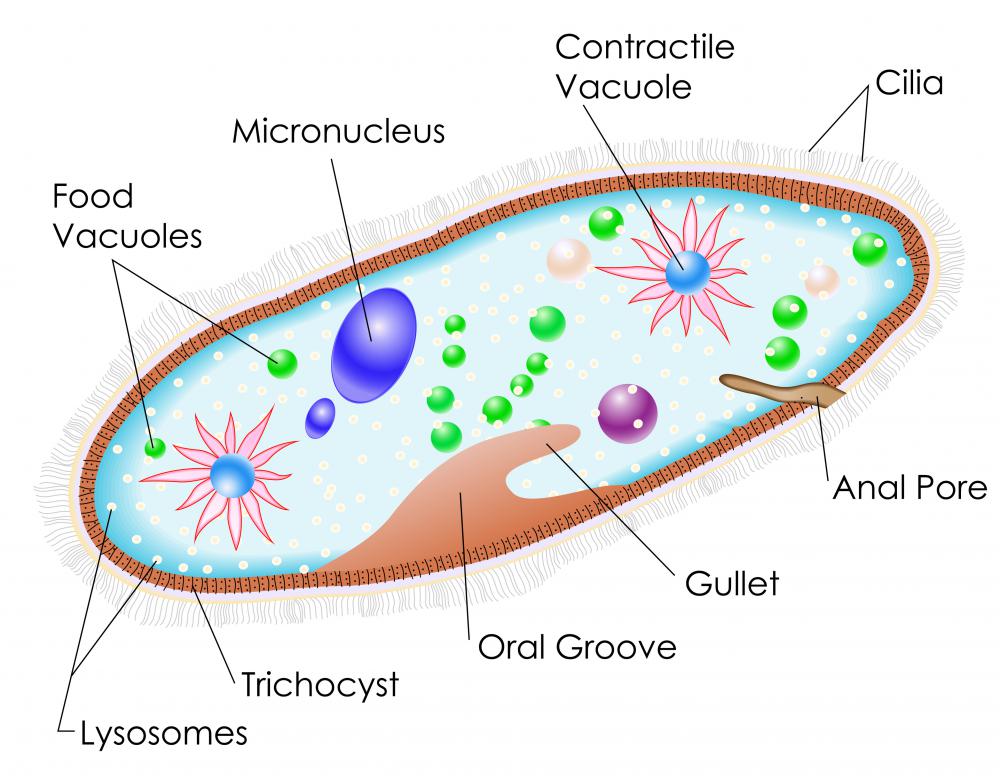At PracticalAdultInsights, we're committed to delivering accurate, trustworthy information. Our expert-authored content is rigorously fact-checked and sourced from credible authorities. Discover how we uphold the highest standards in providing you with reliable knowledge.
What are the Different Microbiology Jobs?
Microbiology is a branch of biology, the study of living organisms. Microbiology deals specifically with microorganisms—for example, algae, bacteria, fungi, protozoa, and viruses—and how they interact with other living organisms. People who have trained in microbiology are called microbiologists and work in a wide variety of microbiology jobs, some of which interact with other fields such as agriculture, environmental studies, food science, or medicine, in which they, for example, may be involved in virology, immunology, or bioinformatics.
Like any other scientists, some microbiologists may become teachers in colleges and universities. They may also become science writers, using their expertise to share developments in their field with their peers or the general public. Alternatively, they may write textbooks to train future microbiologists.

Microbiology jobs in the area of food science can be classified into four main areas. In the area of food safety, there are microbiology jobs in which the focus is preventing foodborne pathogens—such as enteric viruses, Listeria monocytogenes, Escerichia coli, Salmonella—from spreading and helping prevent food spoilage. They also have a hand in identifying probiotic bacteria, bacteriocins, and bacteriophages that can be used to kill and inhibit foodborne pathogens.

On the positive side, there are microbiology jobs involved with food additives, which are used in the food industry as emulsifiers, thickeners, stabilizers, viscosifers, for example. Fermentation of bacteria and yeast—used to make bread, beer, cheese, kefir, kimchi, pickles, sauerkraut, wine, and yogurt—is another area of food industry microbiology jobs. Microbiologists also work in food engineering, the field in which new foods and food-related products are developed.

Microbiologists working as environmental scientists, study the effects of biological and chemical activity on the environment. This study can both help humans see the impacts of their choices and also prevent future problems by being aware of potential issues before they actually occur.
There are many microbiology jobs related to the field of medicine. Some of these are characterized by the type of organism under investigation. A bacteriologist, for example, specializes in the study of bacteria, while a mycologist specializes in fungi, a protozoologist specializes in algae and protozoa, and a virologist specializes in viruses.

Microbiology jobs related to medicine can also be characterized in other ways. For example, immunologists study the body’s defense system as it tries to overcome disease. Microbial epidemiologists study how microorganisms play various roles in both illness and health. Parasitologists focus on parasitic organisms, the survival of which depends on their relationship with other organisms.
AS FEATURED ON:
AS FEATURED ON:















Discussion Comments
Surely this is a very good field of science. I am much interested in it and i wish to join this study in the university course
Microbiologists usually work in laboratories. Even some bigger police departments have laboratories that employ a microbiologist.
Post your comments